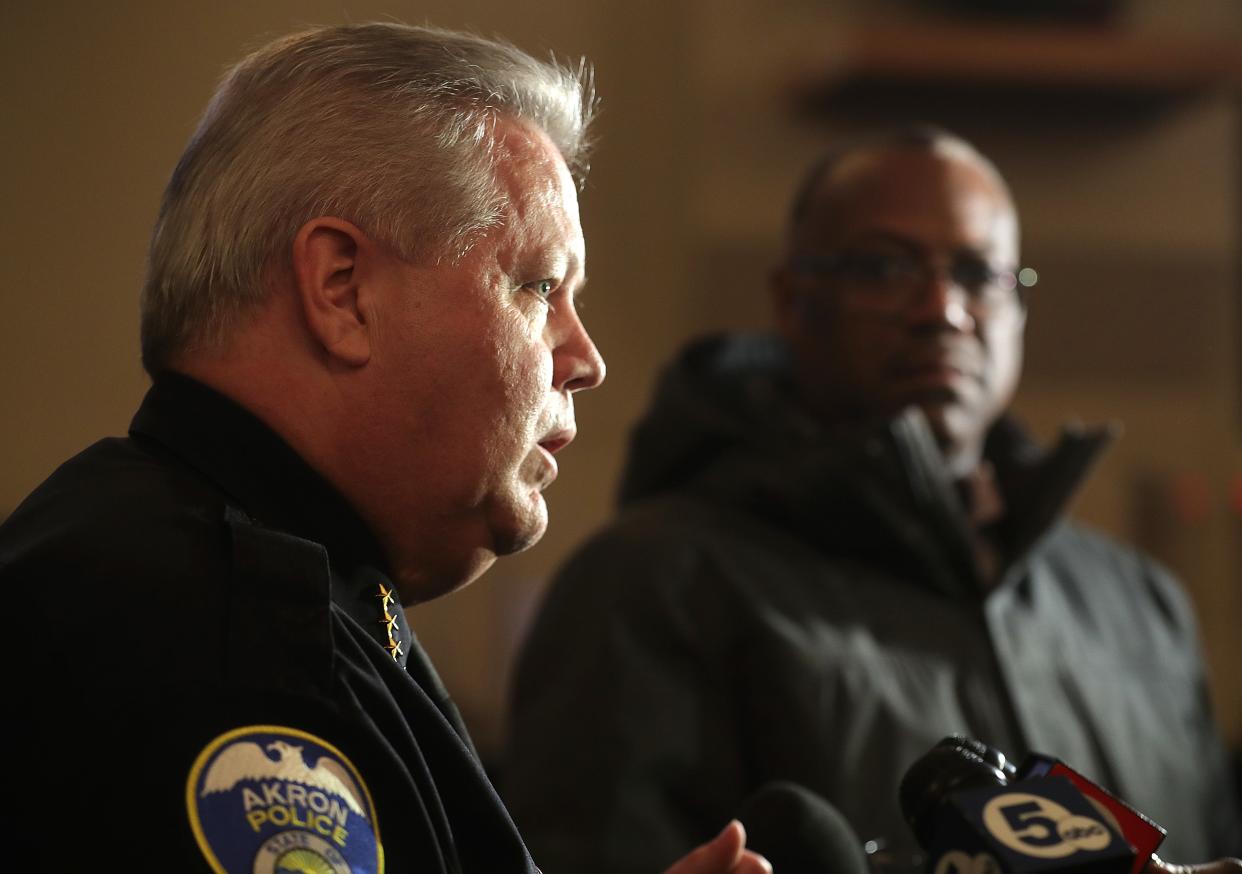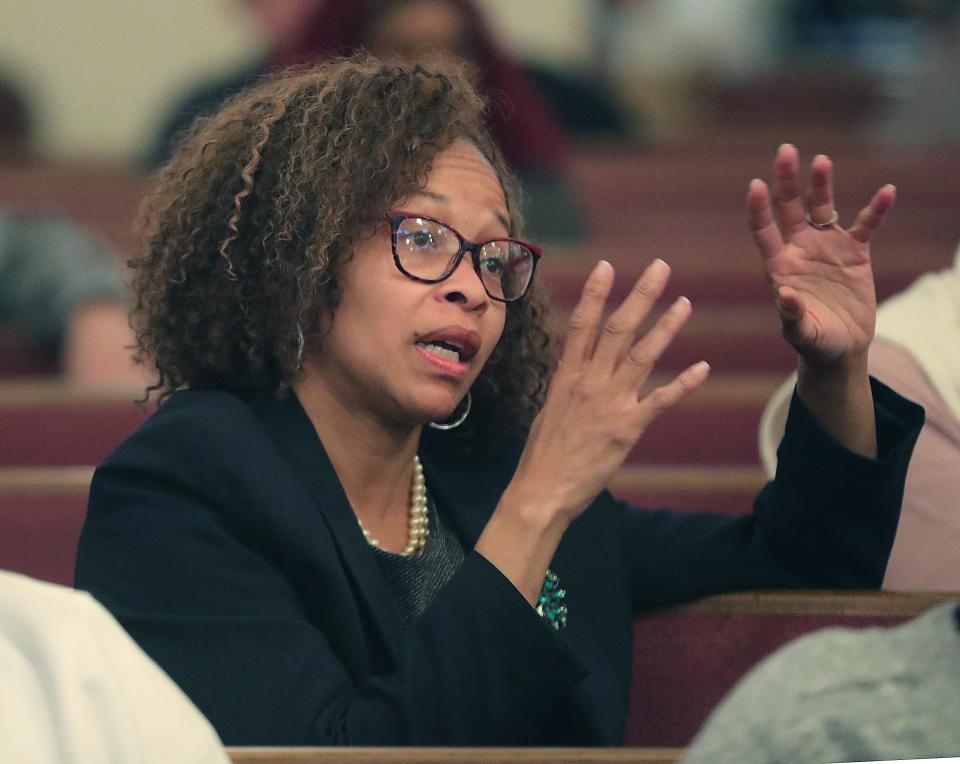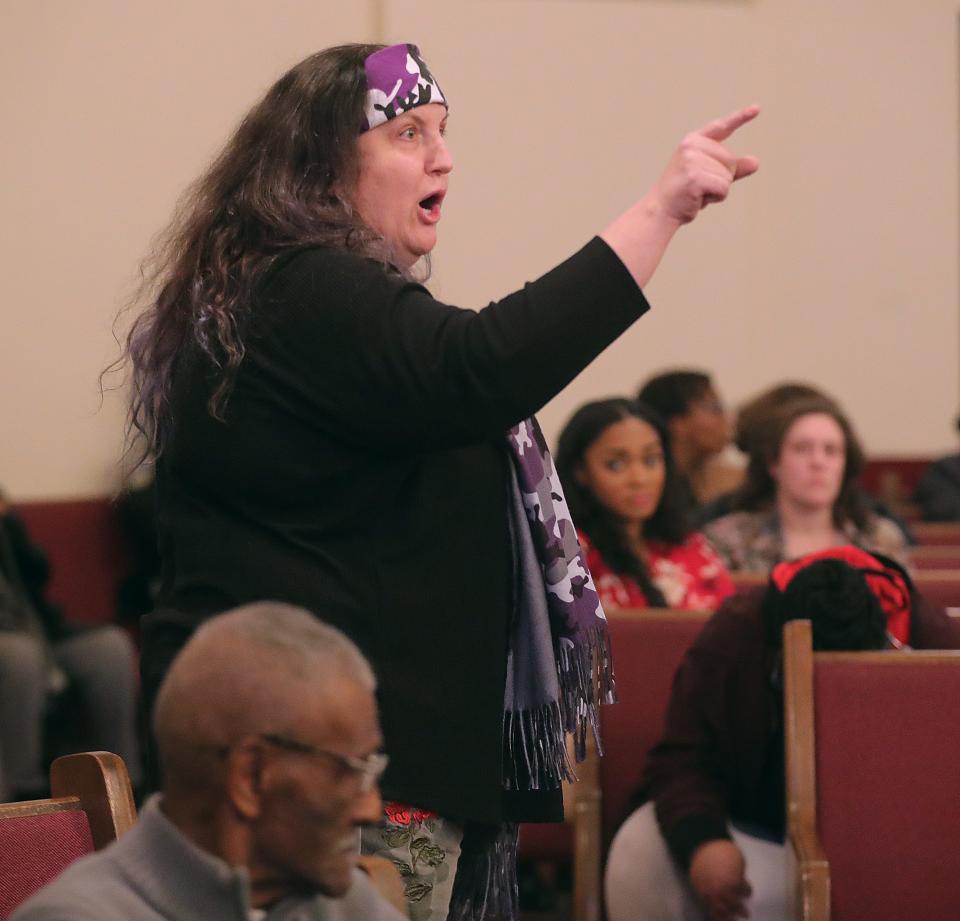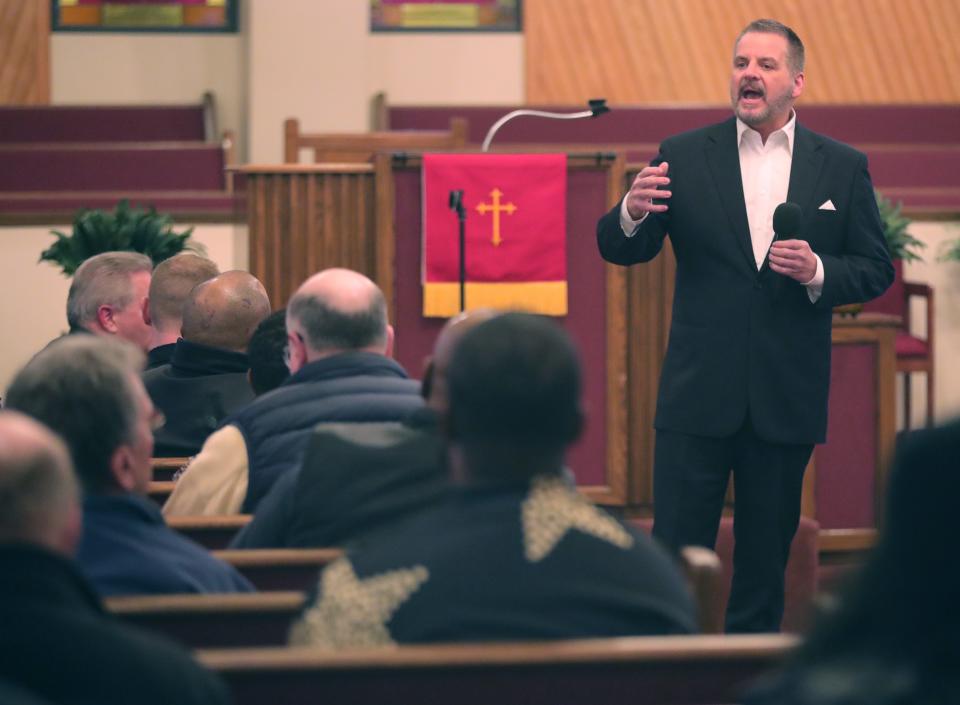Akron police chief fields questions on Jayland Walker case in tense community meeting

Akron Police Chief Steve Mylett faced a skeptical and occasionally critical audience during a two-and-a-half hour meeting Wednesday night on developments in the Jayland Walker shooting case.
About 100 attendees came to the first in a series of community conversations, prepared with questions that remain unanswered 10 months after Walker was shot and killed in a hail of gunfire.

More: Akron preparing for grand jury in Jayland Walker's death to be seated April 10
The meeting took place at New Hope Baptist Church following last week's announcement that a special grand jury will review evidence in the June 27, 2022, shooting of Walker.
Walker, 25, was fatally shot more than 40 times by eight Akron police officers after a car and foot chase. He was unarmed during the shooting, but police said he fired a shot from his vehicle, and that a handgun was found in the vehicle.
More: What we still don't know in the Akron police killing of Jayland Walker

Answers in Jayland Walker case limited by ongoing investigation
"Why wasn't the decision made not to pursue?" asked Felisha McCray, an Akron resident who described herself as a close friend of the family.
Mylett said he is not privy to details of the investigation, which was handled by the Ohio Attorney General's Bureau of Criminal Investigation. Some questioners expressed frustration when the police chief said he was unable to answer queries for that reason.

McCray said after the meeting she wasn't satisfied with the answer.
"We still haven't gotten anything answered," she said. "How much longer is this going to take?"
A special grand jury will be chosen in Summit County Common Pleas Court on April 10 to decide whether charges are warranted in Walker's death. The Ohio Attorney General's Office will represent the state in the proceedings.
Questions about the grand jury process
Wednesday's meeting, which was open to the public, started with Akron Chief Prosecutor Craig Morton discussing the grand jury process that would take place.
"The grand jury is the beginning of the process," he said. "It's not the end."
The grand jury, he said, will have nine members with alternates. The evidentiary standards they use will differ from those used by a trial jury. Only seven of the nine jurors needs to vote for a defendant to be charged.
"They just decide whether or not there's probable cause," Morgan said.
The jury will be chosen from among Summit County residents 18-years-old or older and registered to vote.
"They'll bring a bunch of people in, and then they'll do a selection process," he said.
Morgan said grand jury members can question witnesses, unlike their trial jury counterparts.
"After the grand jury hears all that evidence ... then they will take a vote on various offenses," he said.
The defense attorneys are not involved in the process, he said.
Akron resident Paula Jones said she came to the meeting to learn more about what the grand jury would do in a case that shocked her.
"We see it on the national news all the time and then, boom! it's in our front yard," she said.
She said the presentation helped her understand what would occur come April 10.
"It was a very emotional, highly emotional room," she said.
Questions about officers under investigation
Akron City Council members Russel C. Neal and Tara Mosley attended the meeting, and both questioned the police chief on aspects of the case.
"At what time will the officers' names be released in the community?" Neal asked. "We need to be intentional to make sure the (grand) jury reflects the community where the (shooting) took place."
Mylett said the officers' names won't be released until the grand jury makes a decision on charges.
"If an officer is indicted, their name will be released," he said. "If not indicted, their names will not be released."
Either way, Mylett said, his department will follow up on the case.
"One way or another, there's going to be an internal investigation," he said.
Other attendees returned to the status of the eight officers who shot Walker.
"Since it's under investigation, why are those officers back at work?" said Chyna Lott, a Barberton resident.
Mylett said the department was down about 50 officers and he had to make a decision. He said he delayed his decision to return the officers to duty as long as he could.
"I was at the point I was considering dismantling units," he said.
Homeless advocate Sage Lewis, a Ward 8 City Council candidate, suggested the department needed further work on its relationship with the community it serves.
"From our perspective down here," he said, "it looks like us vs. you."
Protests a sore spot for some
Some questioners were upset that the police chief brought up the subject of protests, saying he anticipated there would be some after the grand jury decision.
"Why are we now having a conversation about protesting?" asked Desha Oanska of Akron.
The police chief said his department has learned from last year's protests and would follow new procedures if they arise this year.
"Last year we had no prep time," he said. "It was like a tornado came in."
Mylett said after the meeting that he came prepared for difficult questions.
"It was something I was prepared for," he said. "There is a lot of hurt in this city."
Leave a message for Alan Ashworth at 330-996-3859 or email him at aashworth@gannett.com. Follow him on Twitter at @newsalanbeaconj.
This article originally appeared on Akron Beacon Journal: Akron police chief fields questions on Jayland Walker case in meeting

